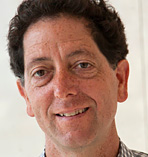NAS Award for Scientific Discovery

About the NAS Award for Scientific Discovery
The NAS Award for Scientific Discovery is presented every two years to recognize an accomplishment or discovery in basic research, achieved within the previous five years, that is expected to have a significant impact on one or more of the following fields: astronomy, biochemistry, biophysics, chemistry, materials science, or physics through the selection of recipients of the Award. The Award will rotate among these fields as determined by the NAS Council. To be eligible for an Award, a candidate must be a scientist at a university, college, or other research institution within the United States. Endowed in 2014 in honor of John P. Schaefer through a gift (Press Release) from the Research Corporation for Science Advancement (RCSA) and the Frederick Gardner Cottrell Foundation. This award is presented with a medal, a $50,000 prize, and $50,000 to support the recipient’s research.
Most Recent Recipient
 |
Kevan M. Shokat, University of California, San Francisco, will receive the 2023 NAS Award for Scientific Discovery.
Shokat is a pioneer of modern chemical biology, using innovative approaches to develop powerful molecular tools to advance basic knowledge and combat devastating diseases.
Shokat, a professor at both the University of California, San Francisco, and the University of California, Berkeley, and a Howard Hughes Medical Institute Investigator, has established an innovative and productive interdisciplinary research program that has produced an array of powerful chemical methods for studying cell biology. Read more about Shokat's work»
Watch Shokat's acceptance speech»
Award History
The inaugural NAS Award for Scientific Discovery was presented in 2015 to Jonathan S. Weissman, investigator, Howard Hughes Medical Institute, and professor in the department of cellular and molecular pharmacology at the University of California, San Francisco, in the field of chemistry, biochemistry, or biophysics. In 2009, Weissman and colleagues at the University of California, San Francisco, developed a technique called ribosome profiling. With this technique, researchers can sequence the chunks of messenger RNA (mRNA) that ribosomes are decoding, giving a snapshot of the genes being translated within a cell. First applied to yeast, ribosome profiling has been since been extended to many other organisms, including humans. It has been used to identify new proteins and peptides, investigate the process of translation, measure gene expression in cells and determine rates of protein synthesis. In addition, Weissman and his team have employed ribosome profiling to make important insights into the critical role that protein synthesis plays in cell growth and differentiation.
Recipients:
Kevan M. Shokat (2023)
For his breakthrough using innovative chemical biology approaches leading to the discovery of the first drugs against the common oncogene, K-Ras, a target previously considered undruggable.
Read more about Shokat's work»
Watch Shokat's acceptance speech»
Pablo Jarillo-Herrero (2021)
For the discovery of correlated insulator behavior and unconventional superconductivity in magic-angle graphene superlattices.
Read more about Jarillo-Herrero's work»
Watch Jarillo-Herrero's acceptance speech»
Xiaowei Zhuang (2019)
For her pioneering contributions to the development of super-resolution imaging and genomic-scale imaging methods.
Read more about Zhuang's work»
Watch Zhuang's acceptance speech»
Gabriela González, David H. Reitze, and Peter R. Saulson (2017)
For outstanding leadership of the large international LIGO Scientific Collaboration, bringing together all of the necessary elements (the instruments, data analysis, general relativity and astrophysics) for the first direct detection of gravitational waves.
Read more about their work»
Watch their acceptance speech»
Jonathan S. Weissman (2015)
For his 2009 development of ribosome profiling, a powerful technique that makes possible genome-wide analysis of protein synthesis in living cells at high resolution, and its subsequent use to reveal many unanticipated, critical molecular insights concerning the process whereby RNA sequences are translated into protein sequences.
Read more about Weissman's work»
Watch Weissman's acceptance speech»

